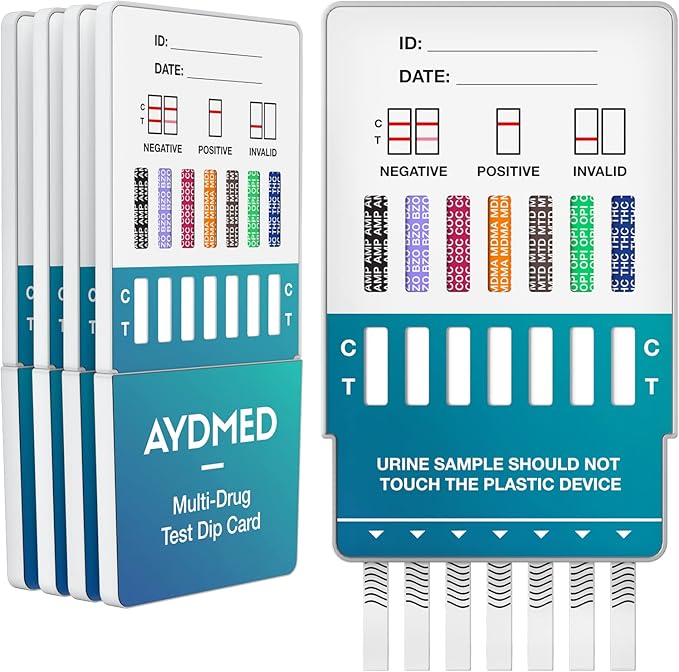FoodDrive
Welcome to FoodDrive which is all about eating more healthily
This area is all about changing your habits and eating more healthily.
The world has changed and we know processed foods aren’t good for us. But can we cut them out totally?
Eating too much processed food or too much of the wrong type of food will in the long term affect your body. Many people say I can’t afford to eat healthily – research says 25% of us buy impulsively at the supermarket. This rises to 33% if we have children.
Food waste is also a global issue - the average family can throw away £1500 of out-of-date food a year.
Click on a heading below and see a summary, and if you're interested you can GO and read more about it!
Here are some facts and stats about food. GO!
Obesity is rising fast in children and adults and we give three reasons why. GO!
We used to manage on meat and two veg – now we eat MUCH more than that for each meal. GO!
Fruit, veg and meat seem to lack the taste they used to have – why? GO!
Should we care where our food comes from? GO!
You are a money making machine – you need to look after it! GO!
You should balance your diet between healthy and processed food. GO!
You should shop slowly and read the labels to see what you’re buying. GO!
When and how you eat affects your health too. GO!
Is it more healthy to be vegan or eat meat? GO!
Remember our parents telling us to chew our food – was that right? GO!
What happens to all the bread in supermarkets that goes out of date? You’d be surprised… GO!
Our diet affects our bodies in all sorts of ways. GO!
Can vitamin sypplements improve your overall health, or do they just give you expensive pee? GO!
Does light or zero sugar make a difference? GO!
If you’re a visitor to our site you can join and download information, assess your own health and create your own action plans, and even contribute to our site. GO!
See what you can do next. GO!
We have some additional information and stuff on this subject. GO!
Facts About Food
1,000 tons of food is wasted every minute Source: comparecamp.com/food-waste-statistics/
Of fish consumed in the UK is farmed rising to 70% by 2050
In a Chinese take away – equivalent to eating 9 Mars bars [safefood]
74% would turn off lights, and 55% would turn down heating to save energy and money BUT 3% feel guilty throwing away food. Source: CompareCamp.com
2.6 million slices of bread thrown out every day in London
Of chicken consumed in the UK is factory farmed
115 calories in a 210ml gin and tonic [Sigulda University] said switch to gin and tonic to lose weight in preference to other alcoholic drinks
Around one-third of the world’s food is lost to waste or 1.3 billion tons per year. Source: TheWorldCounts.com

Obesity is rising fast in adults and children and there are 3 reasons why
We start with obesity; you might be surprised as that is covered in FitnessDrive and WeightDrive but obesity in adults and children has got out of control in the UK and there are 3 reasons why.
Wrong food, too much alcohol and not enough exercise. If you tick all the 3 boxes then you need to take a step back read all 3 drives and ask yourself a question; are you in control of your life or is your life in control of you. We don’t preach at YouDriveHealth, we believe everyone should take responsibility for their own health but often we get carried away. We are creatures of habit and to break a habit takes time and determination. A fourth problem also exists in terms of portion size. In FuelDrive we focus on the types of food we eat.
In the 50s, 60s and 70s the all-adage meat and two veg often meant a small piece of meat and larger volumes of vegetables and potatoes to make up the meal.
Chinese food is great, as is pizza and fish and chips and all takeaways. Alcohol is super and enjoyable. Exercise is great also but all in moderation. If we eat too much, drink too much and don’t exercise we will definitely get fat and unhealthy.
An average Chinese meal is 2194 calories. An average person without exercise burns roughly 1800 calories, the other calories in simple terms are added to our fat level.
To burn calories, say by walking it depends on size and weight but roughly if you weigh 80 KG you would burn 100 calories in 1 mile.
The average brain burns around 500 calories per day, so you don’t need to be a rocket scientist to realise how easy it is to get fat.
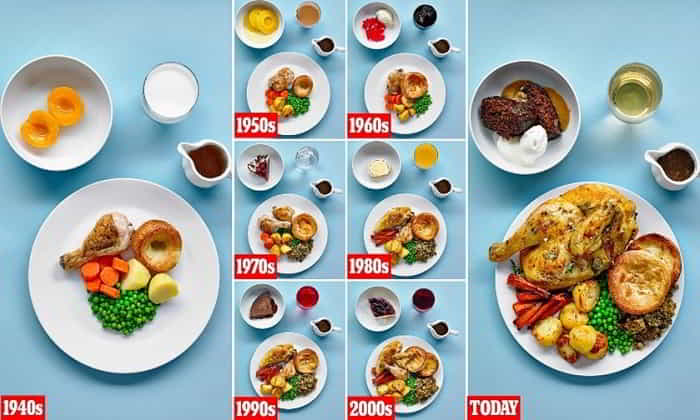
Meat and two veg
One of the biggest problems the UK population face is not the types of food we eat but the potion size. From the 30s to the 70s meat and two veg basically implied a balanced diet of a small amount of meat [ because meat was expensive in those days] and fill up with vegetables and potatoes. Often a Yorkshire pudding was thrown in for good measure or a soup and bread to start with. Why because people could not afford big steaks and joints. Soups with bread and Yorkshire puddings were fillers. Also, during this period any excess meat not consumed would be used for sandwiches, or bones boiled into soups or stews.
For desert was a pudding of simple combination apple pie, rice pudding or sponge and custard. The only serious negative about food in those days was the volume of fat consumed.
It was during the 70s that the steakhouse from America came to the UK and UK people began to consume 120z and 16oz steaks and by the 80s 32oz rib eyes were on the menu.
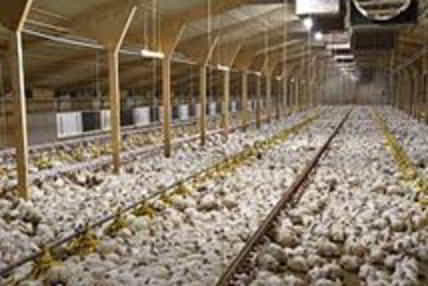
The problem today is fruit, veg and meat lacks the taste it used to. I wonder why?
This comment is made so often today especially by people over 35 as they knew a time when products were tastier. Tomatoes taste of nothing but It looks like a tomato. Pork is pale and tasteless as is chicken, beef not much better. Lamb seems to be the only one to escape this but that is often due to the environment and farming practice.
Animal farming has changed dramatically over the last 50 years. Corn fed free range chickens and pork living outside in fields foraging for roots. Beef fed quality food and grass fed for 5 years before slaughter. Today everything is faster, bigger, more controlled and intensive. Animals in the vast majority of cases 90% for chickens live in unnatural [sheds] conditions.
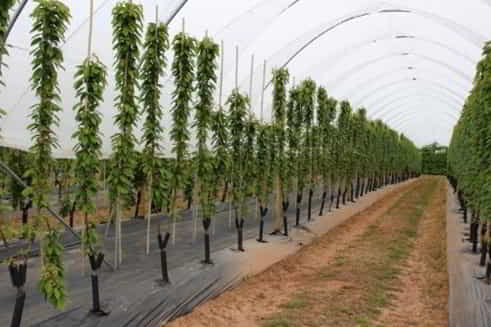
Tomatoes todays are grown in polytunnels. Most soft fruits and veg are grown even without soil in polytunnels in mulch and takes all its nutrition from chemical fertilisers.
Tomatoes todays are grown in polytunnels. Most soft fruits and veg are grown even without soil in polytunnels in mulch and takes all its nutrition from chemical fertilisers.
Food animals are fed on high concentrates with chemicals to stop disease due to the environment. So when we say healthy eating we don’t just mean fresh fruit, meat and veg but where the fruit, veg and meat comes from.
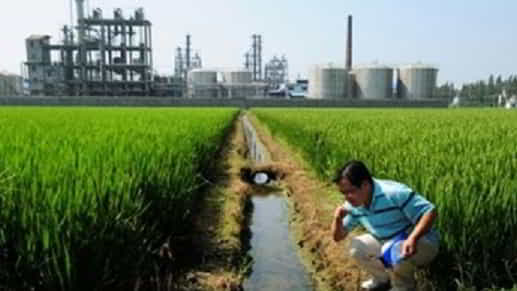
Should I care where my fresh fruit, meat and veg, processed, ready meals come from?
Well, most certainly the answer is yes. If your fresh fruit is grown under polytunnel and never seen soil how did it grow? So, effectively you are eating chemical fertiliser to make the plant grow and pesticides to keep the bug off the plant. Ever see a scabby apple or odd shaped pear in the supermarket everything looks so pristine but if you have an apple tree in your garden you get bits of scab, infestation but wow what a difference in taste. Today, we manufacture food of all kinds but we don’t know the levels producers go to give us that pristine product. Producers and distributors say consumers are demanding high quality products so its not our fault, but this is not true even in the slightest, especially if consumers knew the chemicals used to make the product so pristine.
So, your fresh produce is intensively farmed. What about ready meals? Well not only is that intensively farmed but it has added chemicals to keep it fresh longer on the shelves and stop the ingredients interacting with each other, called stabilisers.
Click on any of the tabs on the right to see more information
Let’s take bread for example. For those lucky enough to visit France and buy a fresh French stick from the boulangerie you would know how delicious it is; but by day two you could use the remaining uneaten French stick to fell a burglar.
Why, because there is nothing in it to preserve it. Let’s take a loaf of bread in the UK. Stored in plastic bags with a used by date of 10 days.
How can these products be so different? Simple – the amount of chemicals they put in the bread to preserve the shelf life – and then we eat it.
Read below about where all the out-of-date bread goes from the shelves of the supermarkets, you might be surprised.
What is becoming scarier than processed food is fresh food. The farmers, scientists and government are now on a mission to feed the increasing population. HOW?
Well, producing fresh food that we can grow quicker, faster, bigger, disease free and more aesthetically pleasing to the eye. But all these things come at a price.
The chemicals that farmers and growers put on the land to grow super-fast produce mean that the feed is so powerful it can double the growth and size in half the time. The pesticides they put on the plants kills everything and anything that lives on a plant, just so we don’t have a marked apple on the shelf. We do need chemicals to stop some diseases on fruit and veg but the chemicals on fruit and veg today go much further. This article in the Daily Mail on 1st November 2018 said:
“On average, new research has found, a supermarket potato will have been doused with an astonishing 30 active ingredients (an active ingredient is the part of a substance or compound that produces its chemical or biological effect). Compare that to 40 years ago — when a potato would have been treated with just 5.3 active ingredients — and you start to see how mind-bogglingly dependent farming in Britain today is on chemicals.”
So, the point is buy locally produced products or organic rather than supermarket products.
Here are some tips:
• Buying local meats from the butcher, make sure you ask them if it is grass fed beef and free-range corn-fed chicken. Is the pork free range open field.
• Buy from farmers markets or even allotment associations
• Grow your own tomatoes, cucumbers, lettuce in buckets if you have to or bags, we guarantee you will see the difference.
• Get your children involved in growing cress, onions radishes simple greens, beans, peas and eat them straight from the garden.

You are a money-making machine
Imagine for a moment; going to a market and being able to buy a money-making machine [ after all that is the main reason why we go to work] We would certainly allocate time to service it, repair it, feed it carefully and exercise and put it through its paces and follow the manual because each month we can go to the machine pull the handle and money comes out. So, how much time and effort would you put into looking after a money-making machine, a lot we imagine. So feed yourself good quality food, a balanced diet of mixed foods and controlled alcohol and make sure you exercise.
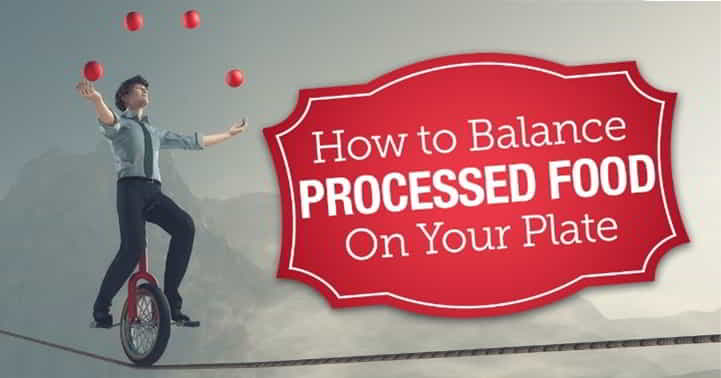
Balance healthy food and processed food
Firstly, all the above are ok to eat otherwise life would be very dull and boring. Naturally ultra-processed foods are so Moorish but w can find an alternative. If we stick with feeding the money-making machine the manual says this machine needs the following: nuts, pulses, and grains.
A healthful diet can help ensure that the body gets all the nutrients it needs.
Nuts, pulses, and grains are all highly nutritious. The following are some of the most healthful:
1. Almonds 2. Brazil nuts 3. Lentils 4. Oatmeal 5. Wheat germ 6. Broccoli 7. Apples 8. Kale
9. Blueberries 10. Avocados 11. Leafy green vegetables 12. Sweet potatoes 13. Oily fish 14. Corn fed Chicken 15. Eggs. 16 Ocean caught fish. 17 Lean meat.
Table of processed food, ultra-processed food and a home version:
Ultra-processed | Processed | Home version |
sweetened breakfast cereals | plain bran cereal | oatmeal made with rolled oats and sweetened with honey |
Coke | artificially flavoured sparkling water | SodaStream |
flavoured potato chips | plain tortilla chips | DIY pita chips |
white bread | whole-wheat bread with minimal ingredients | homemade bread |
fried chicken | deli rotisserie chicken | roast chicken from scratch |
flavoured candy bar with long ingredient list | simple candy bar with short ingredient list | dark chocolate squares |
Frappuccino | store-bought cold brew | drip coffee |
mashed potato flakes | frozen potatoes | fresh, whole potatoes |
energy drink | sweetened fruit juice | fresh-squeezed orange juice |
flavoured granola bars with added sugar and preservatives | granola bars with minimal additives | DIY granola |
artificially flavoured cheese crackers | naturally flavoured crackers | whole-grain crackers and cheese slices |
One tip; remember the meat and two veg. if you are having processed meat or food, add a portion of fresh vegetables to the plate.

Shop slowly and read the labels and origin of purchase
For most supermarket food shopping or online shopping is a rush, get it done asap and get out. But stop this is one of the most important parts of the job, choosing the right food from the right place. It might taste good; it might look good but is it good for you?
How many of us stop and think what’s in this meal, packet, label? Where is this product from? What does Responsibly sourced actually mean?
Responsible sourcing is an approach to sourcing and supply chains. It's when an organisation actively and consciously sources and procures products and services for their operations in an ethical, sustainable and socially conscious way. Or responsibly farmed seafood has been produced in a way that minimises environmental impacts and protects workers' rights and local communities.
This doesn’t mean they don’t use chemicals or its organic it means they try to set standards that are unmeasurable and vague so they don’t have to be held accountable for them but it sounds good to the consumer.
Click on any of the tabs on the right to see more information
Place of origin should now be shown on packaging, which is a good thing. In the UK we have many government bodies such as DEFRA and the Foods Standards Agency who are responsible for overseeing standards, but many breaches occur each year. Suppliers can be fined for failing to comply. But, in other countries especially where corruption is high, standards mean nothing and we have no idea on quality or what chemicals producers are using on the plants.
Prawns from Honduras is a good example. Do the average consumer know how prawns are cultivated in this country and what they are fed on when choosing to buy he product in the supermarket. Or the alternative is ocean caught prawns which cannot be fed on chemicals. You decide what is healthier for you.

Organic products do provide some guarantees and more robust checks, but the term organic can differ between countries and breaches of standard quite often go overlooked.
Bananas are a good example. Bananas are grown generally in more tropical climates and require a lot of pesticides and fungicides. Organic bananas are half the size of the normal banana for a reason they are not sprayed with as much fertiliser as traditional bananas. Cherries are another soft fruit often today grown in polytunnels and are sprayed with pesticides up to 10 times. Pears are sprayed up to 15 times with pesticides. So buy organic if you can and buy local.
Salmon is good for us but 85% of the salmon we buy from the supermarket is farmed. What is the difference between Atlantic salmon and farmed? Well one should live in a vast ocean or river and the other lives in a tank. One feeds naturally and the other is fed on chemical food of which 90% of the farmed fish food is supplied from China. But you choose.

Pork never seems to taste of anything. Well, that might be because 75% of the pork eaten in the UK is intensively farmed. Buy organic and eat better quality meat and give the pig a happier life.

Over 2000 industrial size intensive indoor animal farms exist in the UK and it’s a giant business with great profits. In 2022 this number is rising by 7.5% a year according to DEFRA, so it does not look like we will be getting tasty chicken and pork any time soon.
The traffic light labelling found on the front of some food packaging can help you to compare the nutritional content of different products and guide you to make a healthier choice. This lists the amount of calories, fat, salt and sugar in the product and categorises these as either red, amber or green depending on whether the level is high, medium or low. Opt for as many green categories as possible where you can.
It’s also helpful to remember that the ingredients on the back of packaging are listed in order of quantity. So, if fat, salt and sugar are listed high up, this means that the product is made up mostly of these ingredients.
It is also important to remember to check the nutritional information relates to the serving size you’re going to eat. For example, the label may display calories per 100g, but the product might weigh 120g. So double check the portion you’ll actually be eating and adjust your calculations if needs be.

So which food regime is the best overall? Well, there isn’t really one as their own pros and cons. People say the Mediterranean food is the best but longevity of people in the Mediterranean doesn’t support that thinking. The key is balance to food.
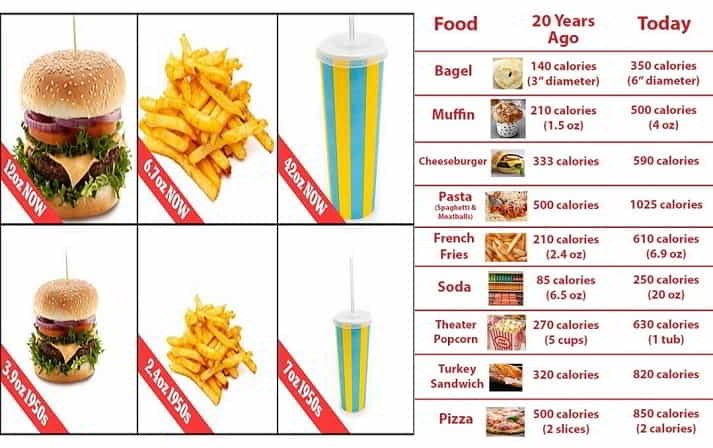
Food consumption
For certain most people eat too much at one sitting. Having kids does not help as we also eat some of theirs especially the puddings. Another issue is being a single person it’s hard to do portion control as you are trying to cook a nice meal and end up making something for four and if it’s really nice you can’t resist going back for more. The fact is portion size is often a bigger issue that processed food or wrong food because it’s the volume you consume.
Lifestyle habits can also be a problem for healthy eating. Rushing to work, getting the kids to school. Rushing back from work, feeding hungry children etc. eating habits should be a family thing. I you are on your own still set the table and make the effort to cook for yourself you deserve it. :
Make the food and If there is too much freeze it or take it for lunch the following day.

They say “Breakfast like a king; lunch like a prince; dinner like a pauper.” In many mediteranean countries this is the case or certainly lunch Is the main meal of the day. The UK the average is 7pm to 8pm. Couple this with a large portion and immobility in the evening and bed by 10.45 so you are sleeping whilst your stomach is still trying to digest food.
Try eating your main meal at lunchtime and eating less in the evening. This gives your body chance to burn of the food you have eaten. :
Try eating your main meal at lunchtime and eating less in the evening. This gives your body chance to burn of the food you have eaten.
What food you shouldn’t eat at late in the evening.
You should not really eat any foods after 9.30 as its not great for digestion.
Not on the evening food list: Crisps, chocolate, Cakes or ice cream, curry, spicy food like Kebabs, Cheese
Go for it late evenings; Cherries, Turkey, bananas, Yogurt, nuts, eggs, oatmeal.
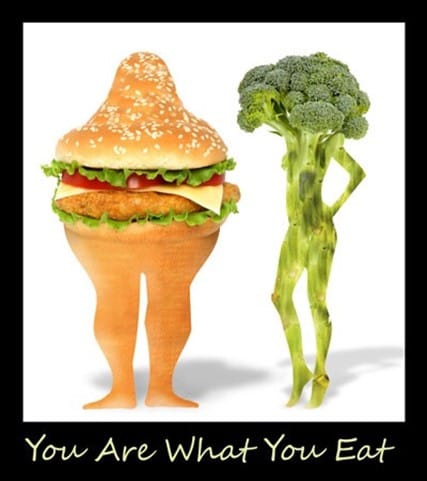
Carnivore or vegan which is healthiest?
In reality both are just as good or bad as each other and require supplements if you are extreme. A balanced diet made up of different types of foods is a healthy balanced diet. Yes, vegans probably have the edge but if you look at most vegan cook books they use a huge number of spices and ingredients to enhance their food. Meat is good for you in moderation.
A good old fashioned full English breakfast will do you no harm every month but not every day. Eating a pork sausage and mash won’t kill you once a month, but not every day. Likewise the prospect of eating lentils each day would have most people rushing for the co-codamol bottle.
I love salad!! We all do but not every day especially in the winter when its cold and your body crave some stodge. Seasonal fresh salad is unbeatable especially from a local market, your own garden or allotment association but out of season most salad is produced under polytunnel and fed on chemicals and then you have to ask yourself which is better for me fish and chips or lettuce doused in chemicals. You decide.
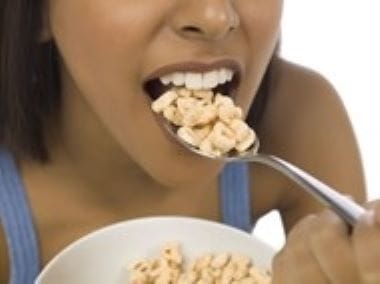
How do I eat?
We all must have heard parents or grandparents say: chew your food or you will get indigestion. Let’s face it most UK people eat to fuel and don’t eat for pleasure. We eat and talk and get the food down as fast as we can. They say chewing the food at least 10 times helps digestion and stops increased stomach and bowel acid. The Telegraph indicated that the NHS spend £7.5 million on indigestion and heartburn remedies each year.
Food for health is about buying and consuming a balanced diet and trying to eat healthily. We all eat unhealthy food from time to time and that is perfectly fine, but why is it that food that really isn’t good for us tastes so nice? But eating too much processed foods will have a significant impact on our weight and organs. In fact, one could say that processed foods are additive like smoking and drinking and it’s not easy to wean ourselves off to a healthier eating habit, and that’s the key word HABIT. See our section on creating a new habit, ChangeDrive.
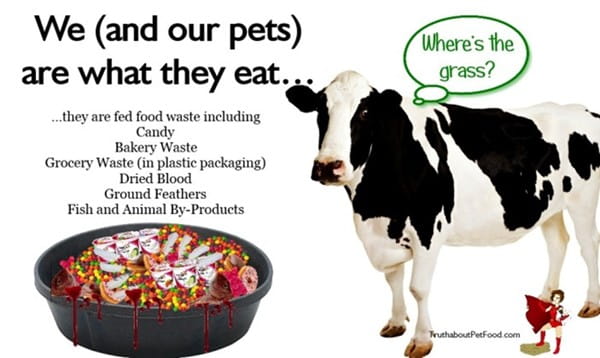
Where does out of date bread go
Earlier in this drive we talked about the difference between fresh bread with no preservatives and bread sold in the UK in plastic bags. Well, have you ever wondered where the old out of date bread goes when it comes off the supermarket shelves? it goes to a special company and it is all ground together into a giant mincing machine and ground up into crumbs. This includes the coloured branded plastic bag it came in and the tag on the end. As bread is yeast based it requires further chemicals to stop another fermentation process restarting.
It is then sold to farmers for winter feed to cows which eat the crumbs, plastic bag and tag. We then milk the cow or eat the beef.
So, not only is most supermarket bread highly processed and laced with preservatives. Some common bread preservatives include calcium propionate, sodium benzoate, potassium sorbate, and sorbic acid but we then mince the whole lot together and add more chemicals to stop the bread crumbs from starting to referment. Then feed this to dairy cows. Imagine all those chemicals, stabilizers and preservatives as well as the printed plastic bag and tag. That’s why you should always buy Organic Milk.
Just to remind you cows stomachs may be big but they are not designed to eat colour printed plastic. Yet again another Food Standards Agency and Agricultural Agency getting together to provide winter feed at a cheap cost with no regard for the cow or the consumer.
So, eat real bread with nothing in it other than the bread making ingredients. Buy a fresh loaf and freeze it and remove slices as you need it.
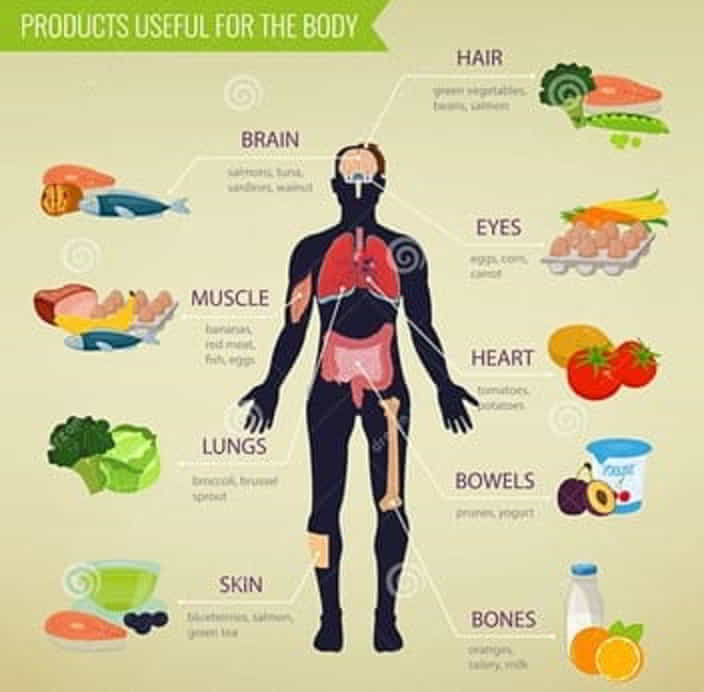
Food medicine - you need the right fuel to keep your body and mind in good shape
A regular healthy eating regime is not just good for you it has medicinal benefits.
If we get too much food, or food that gives our bodies the wrong instructions, we can become overweight, undernourished, and at risk for the development of diseases and conditions, such as arthritis, diabetes, and heart disease. In short, what we eat is central to our health.
The tabs below cover various aspects of body health.
Click on any of the tabs on the right to see more information

High blood pressure, or hypertension, is a growing concern in the U.S. The condition can lead to heart attack, heart failure, and stroke. Eating plenty of vegetables, fruits, and whole grains helps reduce this.
Eat fat-free or low fat dairy products, fish, poultry, beans, nuts, and olive oil. Reduce saturated and trans fat intake, such as fatty meats and full-fat dairy products.
Reduce drinks and foods that contain lots of sugars. High fibre foods are also crucial for keeping the heart healthy.

Eating foods that contain antioxidants can reduce a person’s risk of developing cancer by protecting cells from damage. The presence of free radicals in the body increases the risk of cancer, but antioxidants help remove them to lower the likelihood of this disease.
Many phytochemicals found in fruits, vegetables, nuts, and legumes act as antioxidants, including beta-carotene, lycopene, and vitamins A, C, and E
Foods’s high in antioxidants include: berries such as blueberries and raspberries, dark leafy greens, pumpkin and carrots, nuts and seeds

Some evidence suggests a close relationship between diet and mood.
In 2016, researchers found that diets with a high glycemic load may trigger increased symptoms of depression and fatigue. High glycemic food includes many refined carbohydrates, such as those found in soft drinks, cakes, white bread, and biscuits. Vegetables, whole fruit, and whole grains have a lower glycemic load.

The colon is full of naturally occurring bacteria, which play important roles in metabolism and digestion. Certain strains of bacteria also produce vitamins K and B, which benefit the colon. These strains also help fight harmful bacteria and viruses.
A diet low in fibre and high in sugar and fat alters the gut microbiome, increasing inflammation in the area. However, a diet rich in vegetables, fruits, legumes, and whole grains provides a combination of prebiotics and probiotics that help good bacteria thrive in the colon.
These fermented foods are rich in probiotics: Yogurt, kimchi, sauerkraut, miso, kefir.
Fibre is an easily accessible prebiotic and is abundant in legumes, grains, fruits, and vegetables. It also promotes regular bowel movements, which can help prevent bowel cancer and diverticulitis.

A healthful diet may help maintain cognition and brain health. A 2015 study identified nutrients and foods that protect against cognitive decline and dementia. The researchers found the following to be beneficial: vitamin D, vitamin C, and vitamin E, omega-3 fatty acids, flavonoids and polyphenols and fish.

Maintaining a moderate weight can help reduce the risk of chronic health issues.
Many healthful foods, including vegetables, fruits, and beans, are lower in calories than most processed foods. Maintaining a healthful diet free from processed foods can help a person stay within their daily limit without monitoring calorie intake.
Dietary fibre is particularly important for managing weight. Plant-based foods contain plenty of dietary fibre, which helps regulate hunger by making people feel fuller for longer.

A diet with adequate calcium and magnesium is important for strong bones and teeth. Keeping the bones healthy can minimize the risk of bone issues later in life, such as osteoporosis.
The following foods are rich in calcium: low fat dairy products, broccoli, cauliflower, cabbage, canned fish with bones, tofu, legumes. Magnesium is abundant in many foods, and some of the best sources include leafy green vegetables, nuts, seeds, and whole grains.

Sleep apnea occurs when the airways repeatedly become blocked during sleep. Risk factors include obesity, drinking alcohol, and eating an unhealthful diet. Reducing alcohol and caffeine intake can help a person gain restful sleep, whether they have sleep apnea or not.
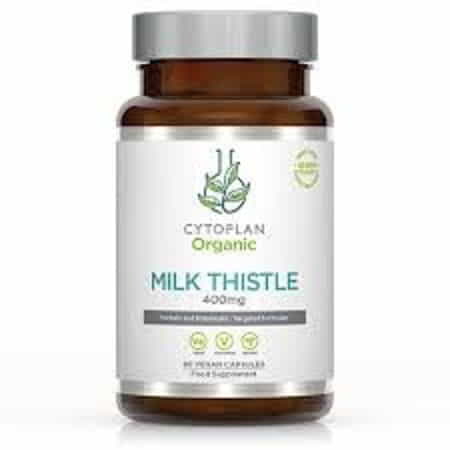
When should I take vitamins and minerals supplements
In most instances and you can ask any doctor, in the main taking supplements only gives you expensive Pee. If you are young, healthy, physically and mentally fit and not doing extreme sports, activities etc then as long as you have a very good balanced diet then there is no need to take supplements. Having said that, you will often in the northern hemisphere find yourself in the winter lacking in vitamin D.
The quality of fresh food and the manufacturers desire to pump chemicals into and onto plants for the sake of growth is worrying. The quality must be reducing you often see on packaging terms such as enhanced vit X and Y o Z and you stop and think why? Why are you messing with the plants? If vitamins and minerals are lacking in a product there putting more chemicals in to make up the shortfall is defeating the object of healthy eating.
If the tradition way of growing plants in soil to which the plant extracts nutrients, vitamins and minerals from the soil then how does a plant grown on a rack in gel gains its nutrients, it can only be through artificial means.
If you are elderly, ill, pregnant or have a medical condition that needs additional support then taking supplements are essential. What most people do when they feel down, tired, sleepy is immediately guess what might be wrong and start taking a multi vitamin. You have no idea what your short on or overdosing on so why not get a blood test and find out if you have any deficiencies. See TestDrive for more details.
If you do need to take supplements then make sure you look for natural supplements first, then organic before looking into standard supplements. 78% of the world production of vitamin C and D comes from China.
Take a test and be specific about what you need. A general supplement will do you little or no good.
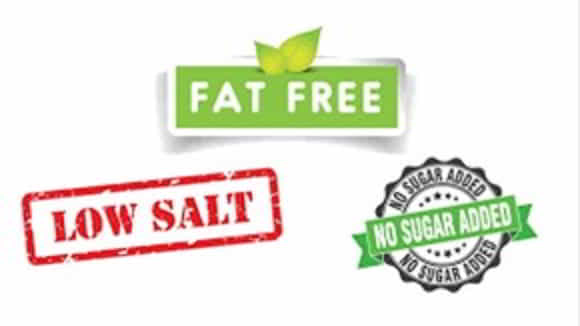
Light or Zero sugar – does it make any difference
Consumers over the last 20 years have gone crazy for low fat, zero sugar products and many have never stopped to think, how is that. I you remove all the fat doesn’t it affect the taste or look. well, the answer is of course it does. Its one of the most processed products you can get on the market.
Why buy low fat when they never taste as good as the full fat alternative, just eat less of that product or make a treat.
Here are 10 things that the advertiser say are low fat and they are low in nutrients;
So, let’s look at some products with the highest sugar contents:
Low fat yogurt, Barbecue (BBQ) sauce, Ketchup, Fruit juice, Spaghetti sauce, Sports drinks, Chocolate milk, Granola, Flavoured coffees, Iced tea, Protein bars, Premade soup, Breakfast cereal, Cereal bars, Canned fruit, Canned baked beans, Premade smoothies.
There is nothing wrong with these products but be aware they contain huge amounts of sugar and you should make sure you eat them sparingly.
• Low fat sweetened breakfast cereals
• Low fat flavoured coffee drinks
• Low fat flavoured yogurt
• Reduced fat peanut butter
• Low fat muffins
• Low fat cookies
• Low fat cereal bars
• Low fat spreads
• Reduced fat cheese
For visitors
Why don't you join us?
You can register to join us as a member, when you’ll be able to download our stuff and comment, or as a YouDriver when you’ll also be able to check your health and set up your own action plans to make some improvements. If you’ve already registered, sign in below. Or let us know what you think.
Power foods for the brain
Brain food?
Video is 17 minutes long from Ted Talks
What can we do to help reduce the risk of Alzheimers? This video (from USA!) discusses the connection between what we eat (on purpose and accidentally!) – and Alzheimers. Is there anything I can eat to improve my chances?

Next Steps
It doesn’t matter what stage you’re at – it’s important to be the best you can be. At the end of the day it’s about taking personal responsibility – You Drive!
It’s really your choice. You can find out more information about the subject, or see other institutions that can help by going to Support. There you will find organisations, training, coaching, self-help courses and other items to support your personal change. We have also started developing a panel of experts to provide info, advice, help and support.
Get Support
There are times when you need some help to meet your aims – a helping hand. That might be an organisation that can provide you with some help, some specialised information, a particular book or tool to help, or just getting some background reading material.
We have a lot of items which appear on our Drives and other pages, which you can go to by clicking on the picture or link. Some contain affiliate links and we may receive a tiny commission for purchases made through these links.
If you know of anything which could help you or our other visitors then please click the button on the right, which will take you to a Contacts page where you contact us.
Experts
We are compiling a list of experts who can provide advice, help or specialised services. You will be able to access these experts from anywhere on our site you see our ‘Experts’ symbol. Click the green E to see what our Experts list will look like, with a couple of imaginary ‘experts’ added!
More Information
Scroll down to see more information on this Drive.
If you register you can also download reports, white papers, quizzes and other collaterals. We will never ask you for any financial information, and we’ll only send you the information you want. You can register for our site either above or in the footer below. You can provide your own questions and experiences in order to help other members. We only moderate for spam and inflammatory language – see our moderation policy.
If you’ve found this interesting, then please share it on social media. Choose your network!
More information
Healthy Eating
100+ Fast and Easy Recipes for the Whole Family
Healthy Eating cookbook presented here is designed to assist you in unfolding the world of food that will give you taste and support and strengthen your heart that has become fragile due to unhealthy diet and unhealthy eating habits of the previous life.
Feel Good Food
Bestselling fitness guru Joe Wicks is back in 2022 with a new cookbook for the whole family full of easy, healthy and budget friendly recipes.
From energy-boosting breakfasts to satisfying family feasts, the food you eat can transform your day.
THIS IS YOUR BRAIN ON FOOD
The Surprising Science behind Your Brain and Food and the Top Foods That Fight OCD, Depression, Anxiety, Insomnia and Unhealthy Gut Bacteria (THE BRAIN FOOD SERIES)
Improve Your Health with What You Eat
The Hairy Bikers’ Meat Feasts
With Over 120 Delicious Recipes – A Meaty Modern Classic
There’s something about the smell of meat cooking that signals a feast – it’s savoury, comforting and tempting. A steak on the grill, a roast in the oven, a casserole bubbling: they make your mouth water.
The Complete Anti-Inflammatory Diet for Beginners
A No-Stress Meal Plan with Easy Recipes to Heal the Immune System
Did you know making dietary changes, like eliminating processed foods, can help lower the inflammation believed to be a key contributor to chronic pain?
The Complete Book of Vitamin and Mineral Counts
Get the Most from the Food You Eat-with the Vitamin and Mineral Counts You Need to Be Healthy and Live Longer (CTN Food Counts)
The importance of a balanced and healthful diet cannot be overemphasized. But how can you be sure you are getting all of the nutrients your body requires?
The New Essential Blood Sugar Diet Cookbook
A Quick Start Guide To Balancing Your Blood Sugar Through Diet. Improve Your Health And Lose Weight PLUS Over 80 New Blood Sugar Friendly Recipes
With plenty of simple and delicious blood sugar-friendly recipes to choose from, this cookbook is a handy resource for anyone embarking on the blood sugar diet and looking for great new recipe ideas!
KEPLIN Kitchen Cooking Digital Food Thermometer with Extra Long Probe
5.9in, inches Backlit LCD Screen with Instant Read, Best Tool for Food, Meat, Grill, Barbecue, Milk & Water (Battery Included)
Backlit LCD: Always visible temperature, able to use in the dark with blue backlight that provides a brightened screen so you can easily read the measurement in any cooking environment, night or day, inside or outside! Just press and hold to turn on and keep the light on, this also retains the temperature reading,
The Health Foundation have published a paper on healthy living in the UK – access their site here
Friends of the Earth have a site explaining their position on sustainable eating
The Health Foundation have published a paper on healthy living in the UK – access their site here
The NHS have lots of information on eating well
If you can’t stop eating, then Overeaters Anonymous can help you curb your over indulgence and give useful tips on overeating
Groceryaid have information on healthy living
If you have Diabetes then click here for eating tips
There’s a report on Food Waste in England from theHouse of Commons Environment, Food and Rural Affairs Committee – download it here
AgeUK have a lot of info on staying healthy as you get older, including sections on healthy eating. Download the paper here.

















